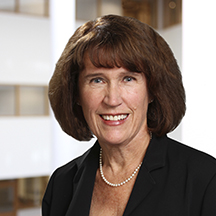How EAPs help with caregiving issues
By Kathleen Greer, LMHC

Caregiving may begin with a crisis and become a major commitment right away. Or it may happen gradually, with tasks increasing with time. In either case—or one of the endless variations—it’s difficult work. Especially if you’re juggling job responsibilities along with all the challenges, disappointments and celebrations of caregiving.
There’s no way to be prepared for the courage, resentment and fatigue that might become your “new normal.” But what if you had a resource at your fingertips that could provide some emotional support for you—and the information, support and resources you need to help plan for your loved one’s care?
That assistance may be available to you today, at no charge, if your employer has an employee assistance program (EAP) in place. A quick call to your Human Resources Department or a visit to your company’s intranet is all it takes to find out.
A safe place to ask for help
Employer-sponsored EAPs are free and confidential for employees and household members. Privacy laws govern EAPs, so it’s a safe place to look for help with caregiving issues—or anxiety, depression, parenting concerns, stress, legal issues and many other reasons. Once you make contact, your EAP might offer some short-term counseling or help you find appropriate resources.
The concept behind EAPs is that helping employees resolve personal challenges enables them to focus more on their jobs and, if they’ve had to take time off, get back to work more quickly. Most employers now have an EAP in place, although the depth and quality can vary.
How do EAPs work?
EAPs are easy to access and staffed by licensed counselors 24/7. Most can accept new cases through a live chat texting feature or email. If you need immediate assistance, though, it’s always safer to call the 800 number, particularly outside normal business hours.
Once you connect with an EAP counselor, the next steps depend on what type of assistance you need:
- The counselor usually does an assessment to make sure everyone is safe and you’re not in the middle of an urgent or emergency situation.
- Most EAPs offer counseling in person or over the phone, as well as a host of educational materials.
- Some EAPs even have video counseling, which can be enormously helpful for long-distance caregivers.
- EAPs that have work-life services will also have lawyers, financial planners, and eldercare specialists available to help with underlying or tactical issues.
How EAPs help caregivers
Caregiving, whether you’re around the corner or across the country, is not easy. Most experts say that the best way to provide support and care for loved ones is to explore options and plan ahead—preparation and prevention are key. Yet sometimes a crisis is what prompts us to get involved.
Fortunately, your EAP can help with a wide variety of issues:
- Help with difficult conversations with elders about driving, medical care, safety, money and end-of-life issues
- Legal assistance with health care proxies, wills, trusts and other documents
- Information about transportation options, financial consultation, home health care workers and senior living options
- Referrals to care managers who can help with planning or make home or hospital visits
- Referrals to special needs specialists to help with disabilities
- Information about home aids such as ramps, chairlifts, doorknob wraps and other tools for improved daily living
- Pre-vetted lists of assisted living options, including pricing and availability
When to call your EAP
If you’re dealing with any of the following questions, it may be time to give your EAP a call:
- Are you concerned about an older relative but live too far away to know how to help?
- Are you caring for a loved one who is disabled?
- Do you have a parent who is faced with the realities of aging?
- Have you seen a change in a loved one who is acting more anxious, angry or depressed?
- Are you worried about an elder but unsure of how to discuss difficult issues?
- Are you avoiding a difficult conversation?
- Are you worried that one parent is taking on the burden of caring for the other?
Consultation, resources and referrals through the EAP are free and confidential. If you need services beyond the scope of the EAP, they will have separate costs.
However, many EAP users report that they save time and money because of the assistance provided by the EAP counselors and work-life specialists. So find out what your company’s EAP offers and take advantage of the help. It’s important to make sure you have the resources you need to take care of your loved one—and yourself.
Guest blogger Kathleen Greer is Founder and Chairman of KGA, Inc., a New England-based EAP and work-life program. Kathleen can be reached at 1-800-648-9557 or greer@kgreer.com.